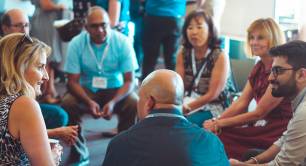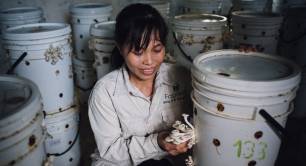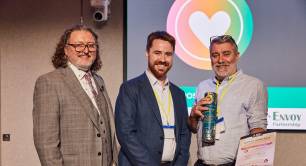Active listener: how Audible uses impact data to make a difference
The audiobook pioneer moved its headquarters to Newark in 2007 to contribute to the city’s economic revival; it has since created a venture fund and several more community programmes. But how does it know what's working? Newark native and Audible's manager of economic impact tells us how a spirit of “radicalism” – plus making impact management part of everyone's job – is driving progress.
Chances are you’ve heard of Audible. You might not know, however, that the world’s largest audio storytelling company cares about more than audiobooks: among its core principles is the belief that “companies can – and should – have missions that transcend financial success”.
Audible was founded in 1995 by Don Katz, a former journalist and author. His company’s purpose is described as “striv[ing] to make a positive impact on the cities we call home”. This has very practical implications: on the cusp of rapid growth in 2007, the company chose to relocate from the suburbs of New Jersey not to New York as would be expected, but to Newark – part of an intentional effort to contribute to the city’s renaissance.
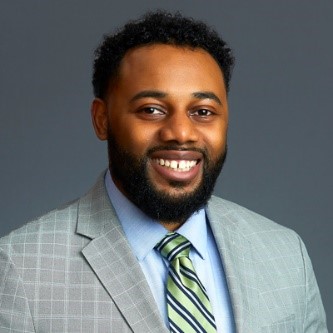 Newark is a “majority-minority” city, says Eric NeSmith (pictured), Audible’s manager of economic impact and data analytics, who was born and grew up in Newark – nearly half the population identifies as Black or African-American, and more than a third as Hispanic or Latino. As of 2017, the poverty rate was twice the national average, and locals held only 18% of Newark’s jobs, according to the New Jersey Institute for Social Justice.
Newark is a “majority-minority” city, says Eric NeSmith (pictured), Audible’s manager of economic impact and data analytics, who was born and grew up in Newark – nearly half the population identifies as Black or African-American, and more than a third as Hispanic or Latino. As of 2017, the poverty rate was twice the national average, and locals held only 18% of Newark’s jobs, according to the New Jersey Institute for Social Justice.
Audible’s presence in Newark aims, in part, to change this. With more than 1,700 employees, it is the city’s fastest-growing private employer. It also provides a US$500 monthly housing subsidy to employees to live there, incentivises staff to buy lunch from local restaurants, and provides job readiness schemes and paid internships. In 2015, Katz created Newark Venture Partners, a venture fund and accelerator that attracts early-stage companies to the city, in the hope of generating jobs and opportunities for local people.
 Above: Newark city, with the Audible building pictured top right (credit: Bruce Emmering on Pixabay)
Above: Newark city, with the Audible building pictured top right (credit: Bruce Emmering on Pixabay)
Radicalism and rigour
Many of Audible’s social impact programmes are now coordinated by its Global Center for Urban Development, created in 2020, which aims to support equity, racial justice and economic empowerment of underrepresented groups in its cities of operation. NeSmith does not disclose its total budget for these programmes and investments, but as an indication says that one project’s yearly budget was around US$1.5m. For him, it’s not just about the money: as an industry disruptor with a spirit of innovation, Audible can take risks and try new approaches, whereas institutions built on “old money” may be limited by bureaucracy or their legacy priorities. “We don’t have a lot of red tape,” NeSmith says.
We don’t have a lot of red tape
NeSmith, whose background is in economic development and real estate finance, was brought into the company in 2021 to bring more rigour to its impact measurement. By this time, the Center had launched some of its key programmes but wanted to expand and deepen its impact measurement processes. NeSmith had the sharp analytical skills, he explains, but was new to the world of social impact, so before taking up his role, he immersed himself in research. He landed on Sopact, which helps companies better measure and manage their impact: “We needed a tool that would help us build a system that was more bespoke to us, and then to have a tool that was able to grow with us.” The two firms began working together to develop logic models and expand their data collection strategy.
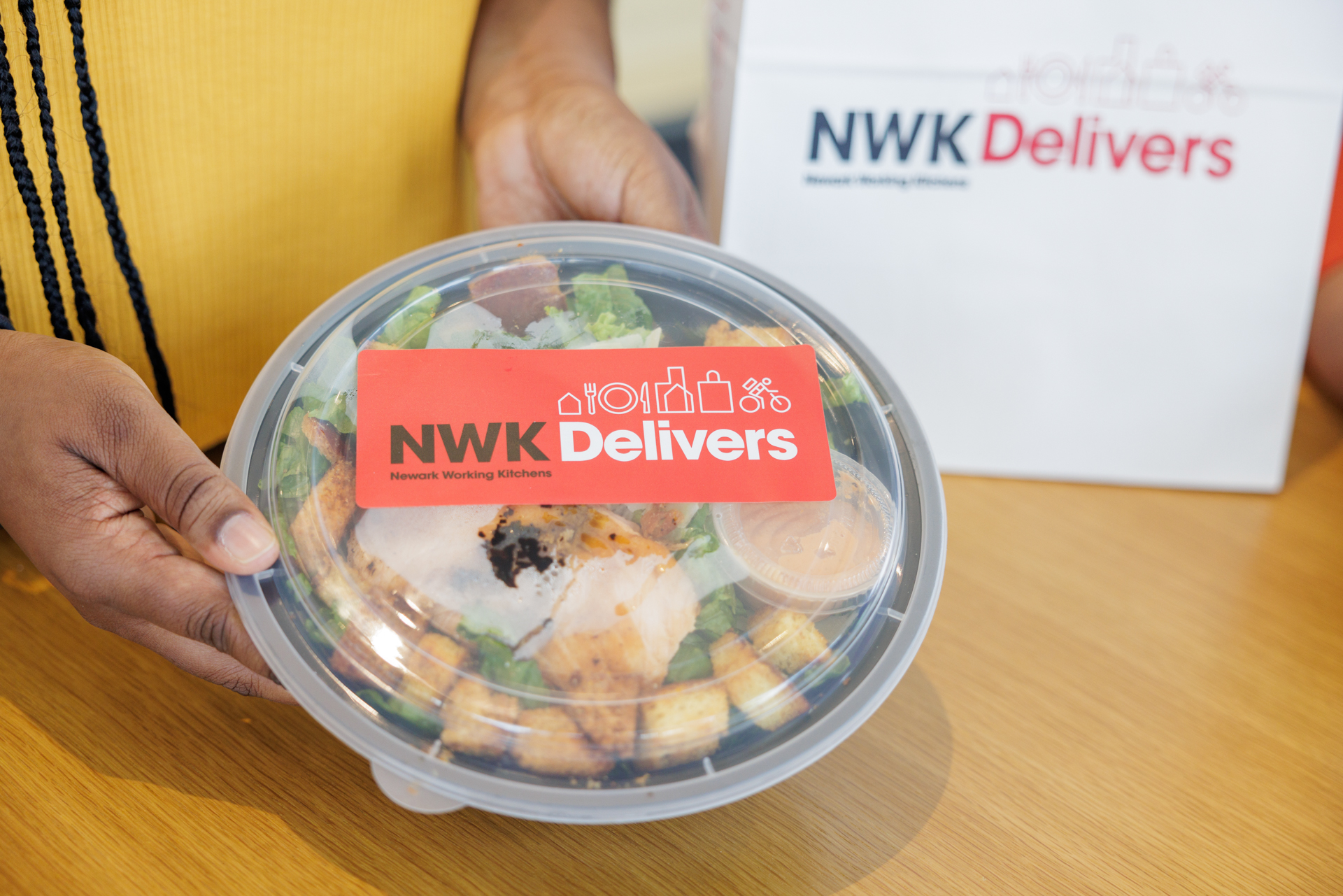
Above: A programme created during the height of the Covid-19 pandemic funded local restaurants to cook and deliver nutritious meals to vulnerable people (photo: Audible)
A common challenge among impact organisations is pinpointing their primary stakeholder, says Vaishnavi Sundaresan, impact management lead at Sopact and one of the team who worked closely with Audible. This was the case with Audible’s Newark Working Kitchens, created during the height of the Covid-19 pandemic, which funded local restaurants to cook and deliver nutritious meals to vulnerable people – thus benefiting both struggling businesses and people facing food insecurity. Sundaresan advised Audible to focus on metrics related to the businesses, because this was much more realistic than capturing those related to residents: “Whatever impact you claim has to be measurable and quantifiable.”
With the desired outcomes now clear (helping small, local businesses to thrive, supporting and sustaining jobs at these businesses), the next step was to figure out how to measure these. “What are the metrics for financial resilience? Is it just the ebitda, or is it the cashflow or the cashflow projections?”, says Sundaresan. Similarly on jobs: were the businesses keeping people in work? Next, they could move on to data collection, through surveys and focus groups, as well as gathering up data that Audible had in various other formats.
A similar step-by-step process took place with Audible Bucks. This pilot programme, inspired by guaranteed income initiatives, provided 300 local university students and 100 local families with nearly US$2,000 additional income over six months, topped up with US$75 each week via debit cards that could be spent at selected restaurants, pharmacies and grocery stores in the area. The programme also channelled nearly US$700,000 to small businesses, which primarily employ local residents.
One thing we uncovered is that university students who live on campus have the lowest food security scores
Tracking the impact involved Audible’s non-profit collaborators doing detailed surveys with beneficiaries, asking about their financial wellbeing as well as things physical and mental health. Surveys found that they experienced significant reduction in food insecurity-related stressors and behaviours associated with academic, professional and personal development.
“One thing we uncovered is that university students who live on campus have the lowest food security scores,” says NeSmith. “That leads to lower educational attainment and higher dropout.” Audible is now working to use the data gathered to support local policies that will address food insecurity on college campuses.
Everyone’s job
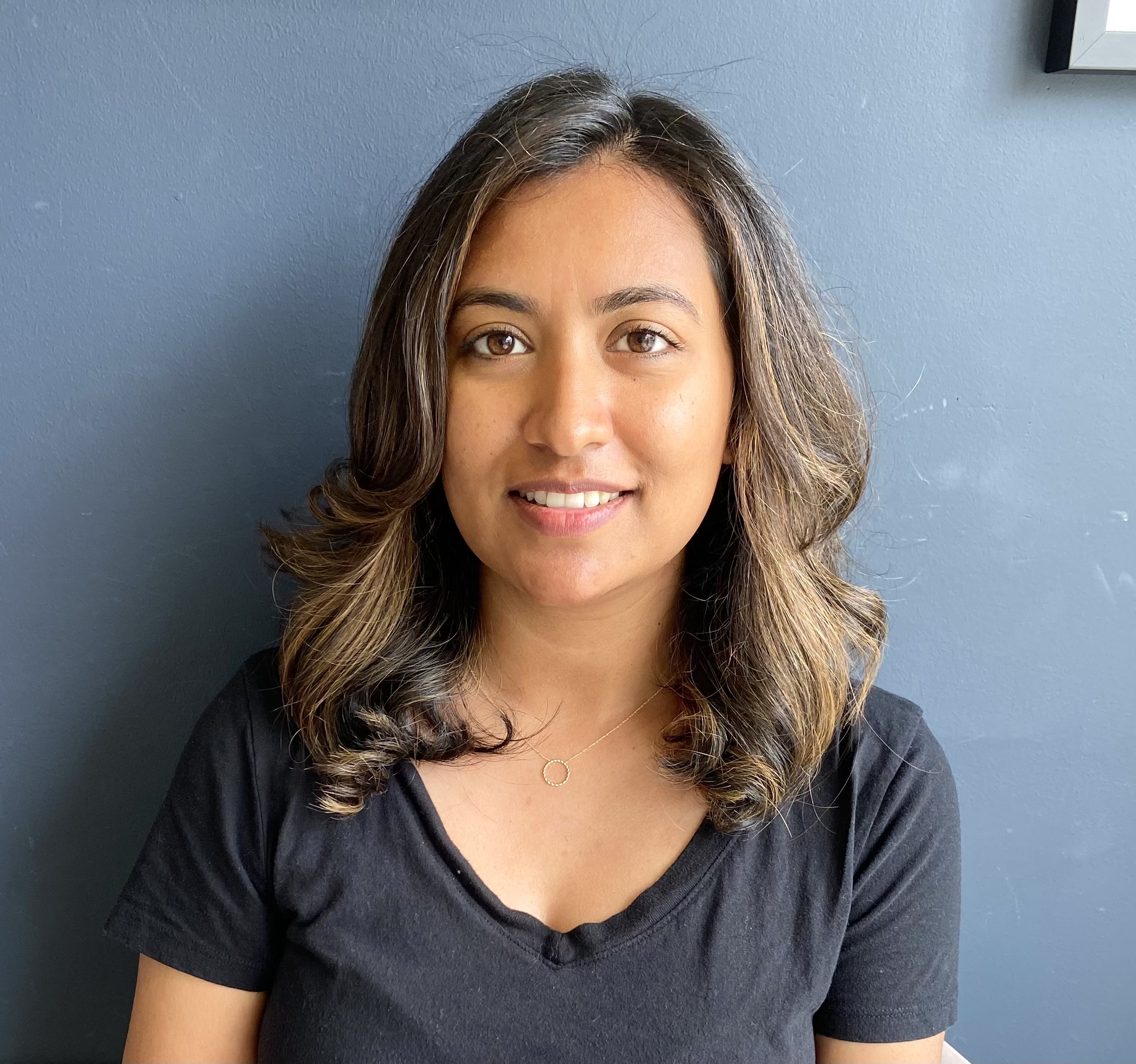 Impact information is gathered on separate programme ‘dashboards’ – online tools that present metrics in a visual format, allowing users to analyse and correlate results. A ‘highlights’ dashboard combines these to provide a bigger picture view of Audible’s overall impact areas (neighbourhood impact, business attraction and retention, local talent development, global community impact), explains Sundaresan (pictured). This shows a wide range of metrics (such as jobs created, number and type of businesses supported, food security stressors, or number of meals served), and shows the extent to which each programme contributes to these figures. Audible tracks these over time, helping them to make strategic decisions for ongoing and future programmes, she says.
Impact information is gathered on separate programme ‘dashboards’ – online tools that present metrics in a visual format, allowing users to analyse and correlate results. A ‘highlights’ dashboard combines these to provide a bigger picture view of Audible’s overall impact areas (neighbourhood impact, business attraction and retention, local talent development, global community impact), explains Sundaresan (pictured). This shows a wide range of metrics (such as jobs created, number and type of businesses supported, food security stressors, or number of meals served), and shows the extent to which each programme contributes to these figures. Audible tracks these over time, helping them to make strategic decisions for ongoing and future programmes, she says.
For NeSmith, one lesson has been that applying an analytical lens “requires buy-in from everyone”. Impact management works best when it’s part of everyone’s job – and they need to be able to connect that to the broader “why”, or purpose, of the company.
One might assume that a large company could develop its own systems without outside support. But Sundaresan says this wasn’t necessarily to be expected: “The space isn't quite evolved. Nobody has it all figured out.” Indeed for Sopact, it makes sense that a company whose core business lies elsewhere would rely on a specialist to build and maintain impact management systems.
For a corporation to just reach out, to collect all this data and try to make sense of it – that was very inspiring
And Lorena Rodriguez, Sopact’s chief customer officer, praises Audible’s commitment: “They’re really willing to collect data, reach out, and do anything to have the right information,” she says. In her experience, large companies usually want to stick to a limited number of metrics that are easy to collect. “For a corporation to just reach out to the actual community, the actual client, to collect all this data and try to make sense of it – that was very inspiring.”
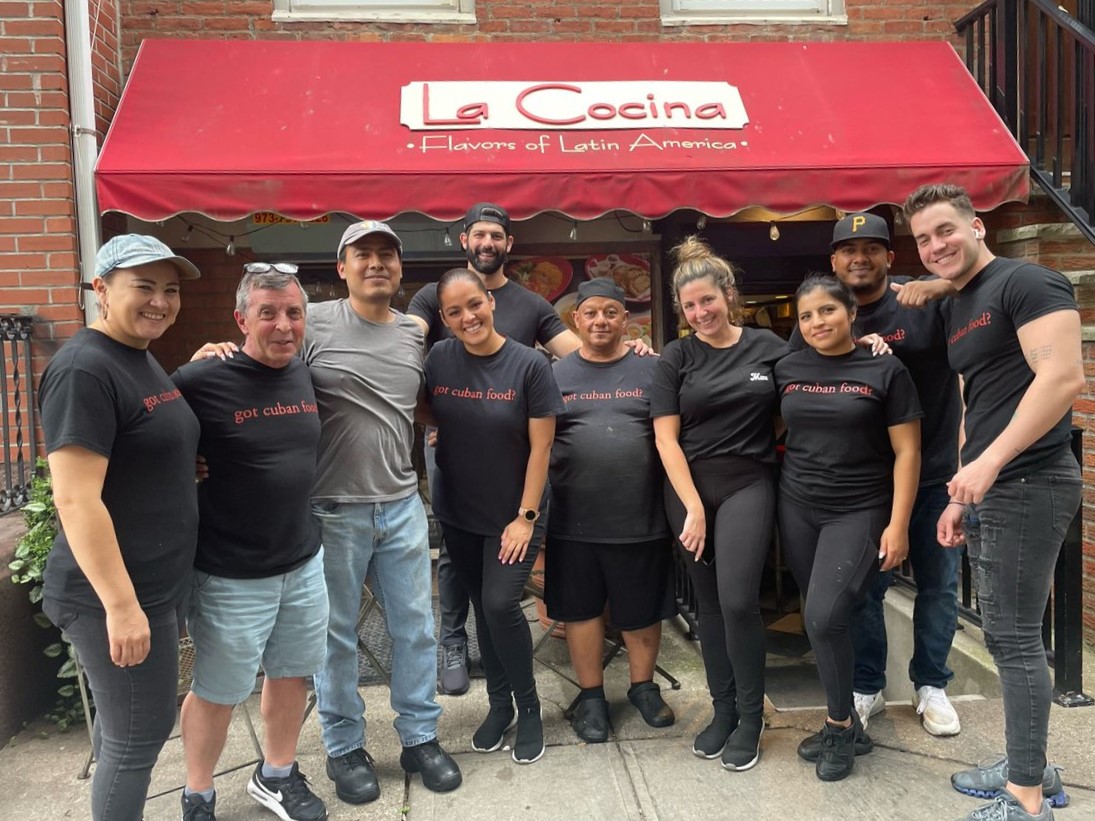
Above: Among Audible's targeted outcomes is helping small, local businesses to thrive (photo courtesy of Audible)
Midfield
Sopact’s experience with Audible also emphasises the different starting points when it comes to profit-first corporates compared with social enterprises. The latter are usually “a lot more mature” in terms of their impact management, says Sundaresan, and so Sopact’s role may be more collaborative. “They already have a good thing going… since they already have been using their own framework, we don’t want to uproot that.” Large corporates, meanwhile, often build their business and impact programmes separately, and then must work to connect them.
“Corporates know that they want to do something good in the community, usually the community where they are,” says Rodriguez. “And they have ideas of how they could help, but they may lack clarity on why they want to do specifically that project or that programme, or how it will tie to their own business goals, which are not necessarily related to a social mission.” What they do have is the resources, which smaller organisations struggle with. “For social entrepreneurs it’s really difficult to get to the point where they can really collect data from the end client,” Rodriguez says.
|
How to help a corporate measure its impact Social impact programmes within large companies typically need aggregated “output data” to demonstrate to senior leaders that they are meeting broader company targets, such as amount of money donated, value of in-kind services provided, etc, says Hetal Sheth, Sopact co-founder. They also need “outcome data” – who they are helping, what is changing, and by how much. Gathering up all this data from multiple sources, and ensuring it is complete and clean, requires data science and data engineering knowledge. “Sopact fills this gap for impact data management so that corporate clients do not have to maintain those skills internally,” says Sheth. |
NeSmith sums up Audible’s impact management progress so far with an American football analogy. “We haven't passed midfield yet. But we're pretty close. I think we're at a point where we can start moving faster, understanding the impacts, and then managing them in a way that allows us to continue to try new things and move much closer to long-term outcomes.”
What is his advice to others in similar roles? Embrace a spirit of “being the trailblazer, or being radical”, he suggests. “I think that has allowed us to really uncover the true potential, and that is really, really motivating and really exciting… It allows you to imagine the possibilities and then move fast to make it real.”
This article was produced in partnership with Sopact. Find out more about how Sopact helps organisations to implement an end-to-end impact measurement and management process.
Top photo by Dollar Gill on Unsplash


